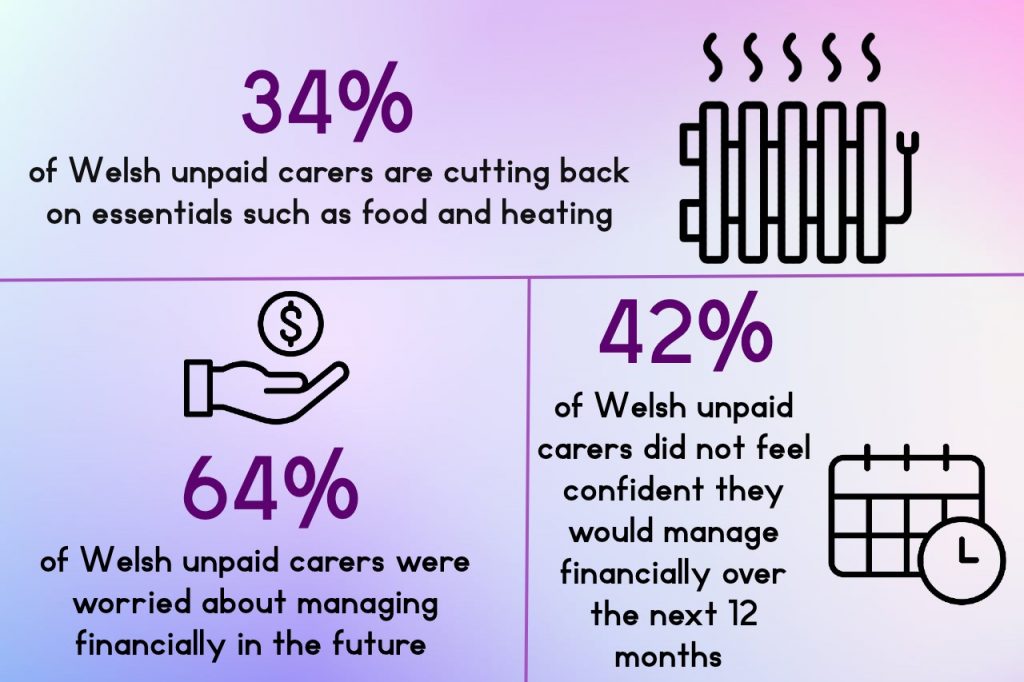As energy prices continue to soar and many struggle financially, Wales’ unpaid carers are finding it difficult to heat their homes

As we settle into winter, many of us are reaching for our thermostats to combat the chill. Yet, with the price cap for energy rising in October of this year and another increase expected in January 2025, the cost of heating a home has been a worry for many.
Unpaid carers are some of the most concerned as they find they must maintain a certain temperature in their homes to meet the needs of those they care for. Yet, with concerns over costs, many are putting heating on the back burner and making it less of a priority.
Jake Smith, the policy and public affairs officer for Carers Wales, says many unpaid carers are currently facing “acute cost-of-living pressures” that make it difficult for them to heat their homes this winter.
Smith says unpaid carers often have higher heating bills because they must heat their home to a consistent standard to manage the symptoms of those they care for and so rising costs are especially difficult for them.
In October, Carers Wales published a report on the financial pressures of Welsh unpaid carers. It found 34% were cutting back on essentials like food and heating, an increase of 2% from 2022.
It also found that 64% were worried about managing financially in the future and 42% did not feel confident they would manage financially over the next 12 months.

A winter of worries
Sophie Griffiths who is a 32-year-old unpaid carer for her grandfather with cancer says, “I’m limiting when I put my gas on because you have to be able to afford it.”
Griffiths says she turns the heating off and wraps herself in blankets to save money.
“I kind of get by by myself,” she says. “I’ve got to be strong for Nan, Bampy and Mum.”
Griffiths lives near Talgarth, but travels to see her grandfather several times a week so she can care for him while his wife goes to work. Despite taking on a carer’s role part time, she is not a registered carer. The government will not allow her to claim Carer’s allowance as she is now disabled following spinal surgery and receives benefits already.
“I think it’s sad in this day and age,” she says. “You’re caring for someone and they’re going to penalise you.”
Some days I can’t get out of bed. Some days I can barely walk
Griffiths says even if she could claim Carer’s allowance, she would earn less money because she would no longer be eligible for Personal Independence Payment (PIP). Therefore, she must take on a carer’s role without financial help.
Griffiths added that sometimes she struggles with her own health and needs, but she must set everything else aside to provide the care that the government is not providing.
“Some days are better than other days,” she says. “Some days I can’t get out of bed. Some days I can barely walk.”
Griffiths is not the only carer worried about heating costs. Gill Stafford, a 79-year-old carer from Conwy, says she is concerned about gas and electricity because they “have high costs” and they “keep going up.”
Stafford is a full-time unpaid carer for her 38-year-old son Gareth. She often helps Gareth to eat, drink, and wash and dress himself. Stafford says that, despite being disabled, her son has a lot of independence, is very intelligent and has “a terrific sense of humour.” He holds a degree in studio recording from Glyndwr University and can communicate by mime, air writing, and devices such as computers and mobile phones.
Stafford is fortunate to have savings, inherited money and her husband’s pension so she can support herself even when rising prices concern her. She says she will not be in “desperate straits,” like some carers are and she “just manages.” Her son is also able to support himself as he gets benefits such as Personal Independence Payment.
Where to go for a helping hand
For carers seeking support, the Welsh government and carers’ organisations such as Carers Wales and Credu are there to help.
A Welsh Government spokesperson says: “We highly value the vital role unpaid carers play in our communities and are committed to ensuring support continues to be available.”

“We have provided £4.5 million for the Carers Support Fund which has delivered small grants to 17,500 unpaid carers in the last two years,” they say.
They added that: “The fund also provides financial information and advice to people to ensure they take up all their entitlements.”
Becky Evans, the CEO of Credu, says her charity also provides financial information and advice by supporting carers and listening to what’s important to them.
Evans says Credu allows carers to “have a voice,” and gain control over the issues that affect them.
Similarly, Carers Wales also provides information and advice. Smith, the policy and public affairs officer, says all of their resources are available on the Carers UK website in English and Welsh.
The Carers UK website offers 16 tips to help carers save on their energy bills. The tips help carers to understand if they are eligible for winter fuel payments and a place on the Priority Services Register. They also give advice on how to keep warm during the winter months so carers do not have to reach for the thermostat.
However, even with these tips, there is a lot more that could be done. Smith said the support is “insufficient compared to the scale of pressures,” and he would like to see more support from the Westminster government.
For more information on the financial difficulties of Wales’ unpaid carers watch the video below:
